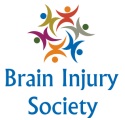
Loss of memory is one of the most common symptoms associated with a traumatic brain injury (TBI), regardless of how the injury occurred. In fact, memory loss is one of the first symptoms to show, and one of the last to return. Fortunately though, if you’ve suffered from memory loss as a result of a traumatic brain injury, there are strategies you can use to successfully manage it. First, however, a distinction should be made between the types of memory, and which is the most problematic after a traumatic brain injury.
Types of Memory
Our memories work via a system of encoding (processing), storage and recall. The most personal type of memory is that which captures our life events and experiences. This is called episodic memory. Semantic memory is the retention of facts, such as those we learn in school. Procedural memory refers to our ability to remember how to do things, and prospective memory is our ability to remember things that need to be done in the future (ex: birthdays and appointments).
Any combination of these memory categories can be impacted in a person who suffers from memory loss as a result of a TBI. However, semantic and procedural memory are usually left intact, or return in short order. Prospective memory, which utilizes much of our short term memory, is what is most directly and substantially impacted.
Coping Strategies
Many TBI victims never fully regain their short term memory functions, so they must learn to navigate their lives using coping strategies. Of course, working with a specialist can help, and there are countless memory rehabilitation centers in the United States. However, not everyone has access to one, nor can everyone afford to get help. So, often people are left to their own defenses. Here are a few tips that can aid in improving quality of life, even for those whose short term memory never fully returns.
Create a routine: Write down a daily or weekly routine and check off each item as it is completed.
Keep a diary: Record appointments, birthdays, and other important events in a journal.
Repeat it: If trying to retain something, write it down and repeat it out loud regularly.
Visual images: Use pictures and other visuals to memorize important people and places.
Word play: Try creating acronyms, or using mnemonics to retain information.
In addition to the above tips, there are multiple apps that can assist with memory function as well. For iPhone users, there’s Spaced Retrieval TherAppy, which helps improve “memory of names, facts, and routines”. Cozi is a simple family organizer that is available for iOS and Android, and ICE (In Case of Emergency) can track all medications, allergies, insurance information, and doctor’s names. It’s also available for iOS and Android. By supplementing the above tips with these apps (and others), a person suffering from short term memory loss can function more independently.
Memory loss that results from traumatic brain injury is frustrating, and it negatively impacts quality of life, often leaving its victims to rely on others for help. However, it doesn’t have to stay that way. Using simple tricks, and with a little help from technology and a lot of patience, memory can be strengthened, quality of life can be improved, and TBI survivors can regain much of their independence.
